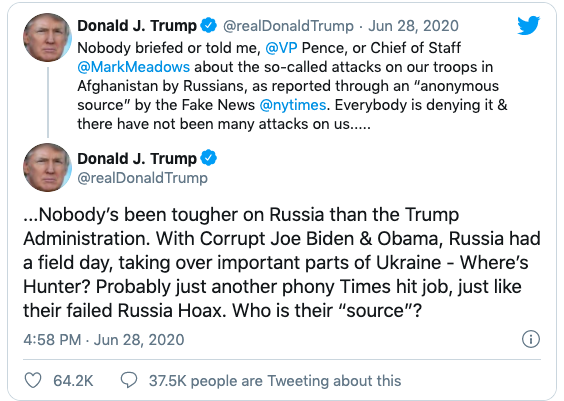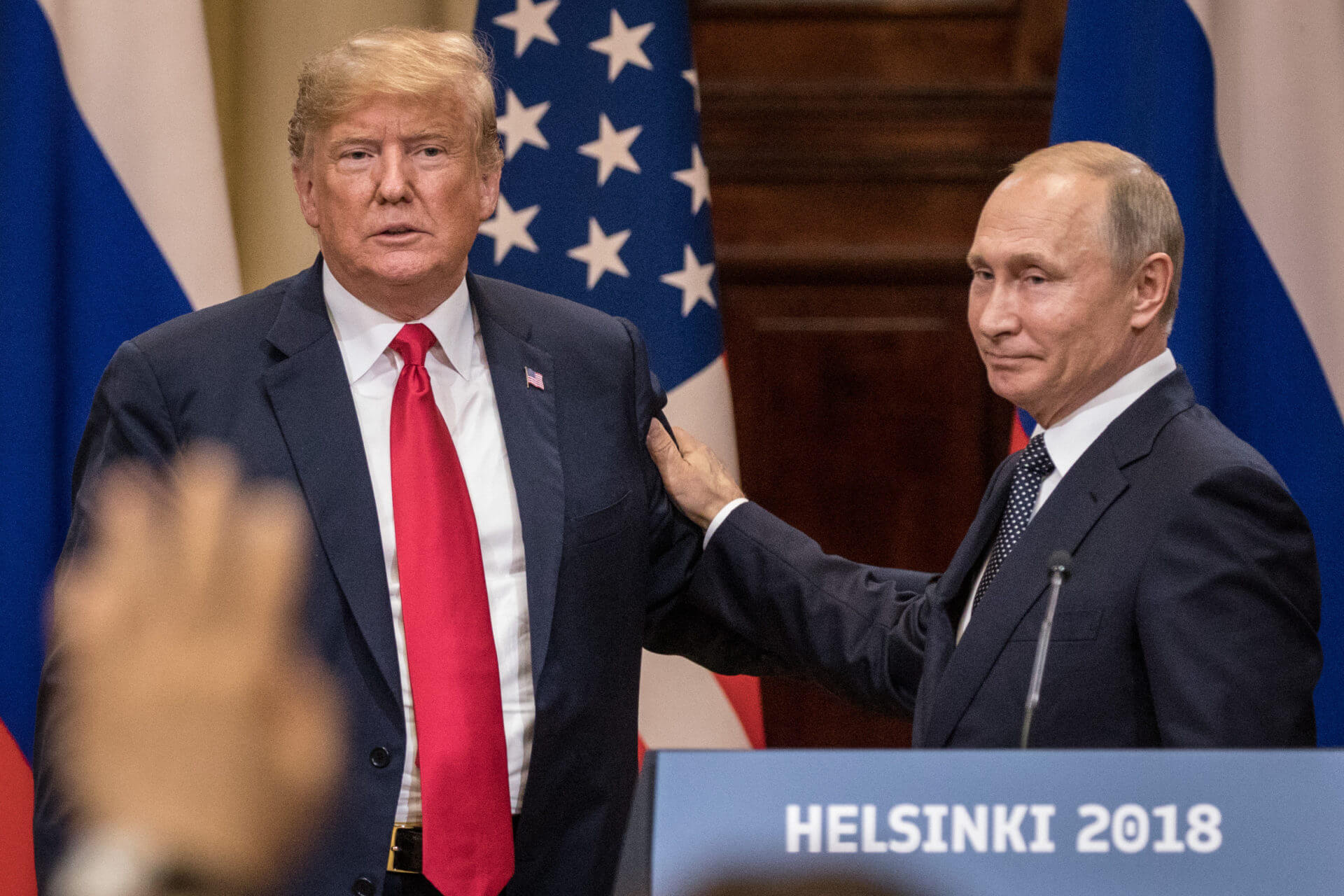US President Donald Trump has denied two New York Times reports which claim that he was briefed about an alleged Russian plot to offer rewards to Taliban-linked militants for killing coalition forces in Afghanistan, including American troops.
The explosive reports claim that US officials and Special Operations forces alerted their superiors about their suspicions as early as January, after they recovered large amounts of US dollars from a Taliban outpost. According to the Times, intelligence officials briefed Trump in March and the issue was discussed by the White House National Security Council at the interagency meeting later that month. A number of options were provided on how to best respond to Russia, which included registering a diplomatic complaint and enforcing a series of sanctions. However, the White House has yet to authorize any action against what intelligence suggested was an unprecedented Russian attack on US troops and a significant escalation of the country’s support for the Taliban.
Trump refuted the reports in a series of tweets on Sunday, claiming that he was never briefed on the intelligence assessment.

He also went ahead and questioned the validity of the report, calling it “possibly another fabricated Russia hoax”. However, statements by both the White House and the Director of National Intelligence (DNI) John Ratcliff did not push back on the substance of the assessment, but rather just focused on Trump and Vice President Mike Pence not being briefed on the “alleged Russian bounty intelligence”.
Details of the exact modalities of the Russian operation are not clear yet, and an understanding of the motivation behind such efforts remains murky. Some have theorized that it may be Russia’s attempt to exact revenge on NATO forces for killing hundreds of Russian mercenaries in a 2018 battle in Syria, or a ploy to derail peace talks and keep the United States stuck in Afghanistan. According to a CNN report, Russia offered rewards to Taliban militants for killing British troops as well.
The Russian embassy has rejected the report, calling it “fake news”. A spokesperson for the Taliban has also refuted the allegations, calling them “baseless”, saying: “our target killings and assassinations were ongoing in years before, and we did it on our own resources. That changed after our deal with the Americans, and their lives are secure, and we don’t attack them.”
Though Trump claims to have been extremely “tough” on Russia, he has consistently undermined US intelligence assessments about Moscow in the past. At a 2018 meeting in Helsinki, Trump endorsed President Vladimir Putin’s “strong and powerful denial” of US findings that Russia had tampered in the 2016 presidential election. He has also repeatedly called for the US to pull out of NATO, which would significantly help Russia at the expense of US allies in Europe. Furthermore, when Congress passed new sanctions on Russia over election interference, Trump (unsuccessfully) tried to veto it, and then implied it was unconstitutional when he had to sign it.
Trump’s critics are calling the Times reports as further evidence of the President’s inability and unwillingness to curb Russian influence, and of his focus to foster a personal relationship with his Russian counterpart.
Former US Vice President and presumptive Democratic presidential nominee Joe Biden took aim at Trump at a virtual town hall on Saturday, saying that he had betrayed US troops by failing to protect them in a war zone. Similarly, House Speaker Nancy Pelosi said that it was “outrageous” that the President “wants to ignore any allegation against Russia” calling the situation “as bad as it gets”.
Trump’s actions have also drawn criticism from within his own party, with Republican Rep. Adam Kinzinger of Illinois, who is an Air Force veteran and served in Afghanistan and Iraq, tweeting that “Russia is not a partner, and not to be negotiated with” and that Trump “needs to immediately expose and handle this, and stop Russia's shadow war”. Sen. Lindsey Graham, a supporter of the president’s, said that he expects the administration “to take such allegations seriously.” Additionally, Rep. Liz Cheney, chair of the House Republican Conference, wrote that Trump “must explain” why he wasn’t briefed, who did know and when, and “what has been done in response”.
More than 2,400 US service members have died in Afghanistan since the start of the war in 2001. 2019 was the deadliest in five years for the US, with 23 service members killed during operations in the country.
Image Source: Morning Consult/Getty Images

